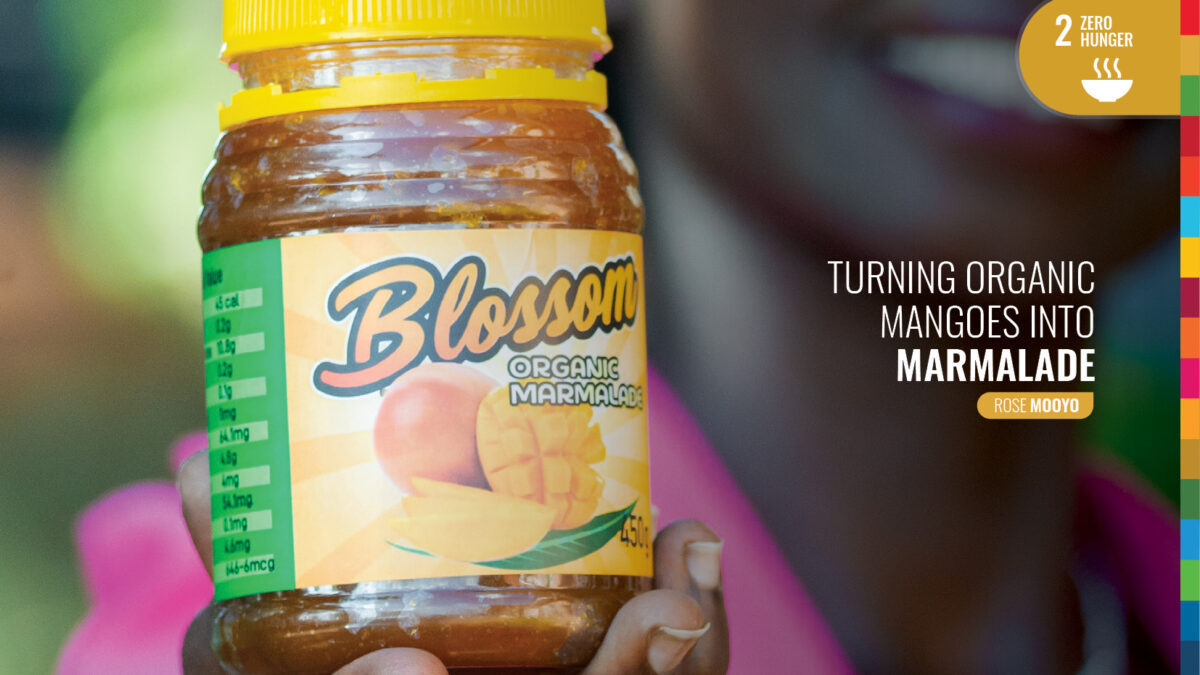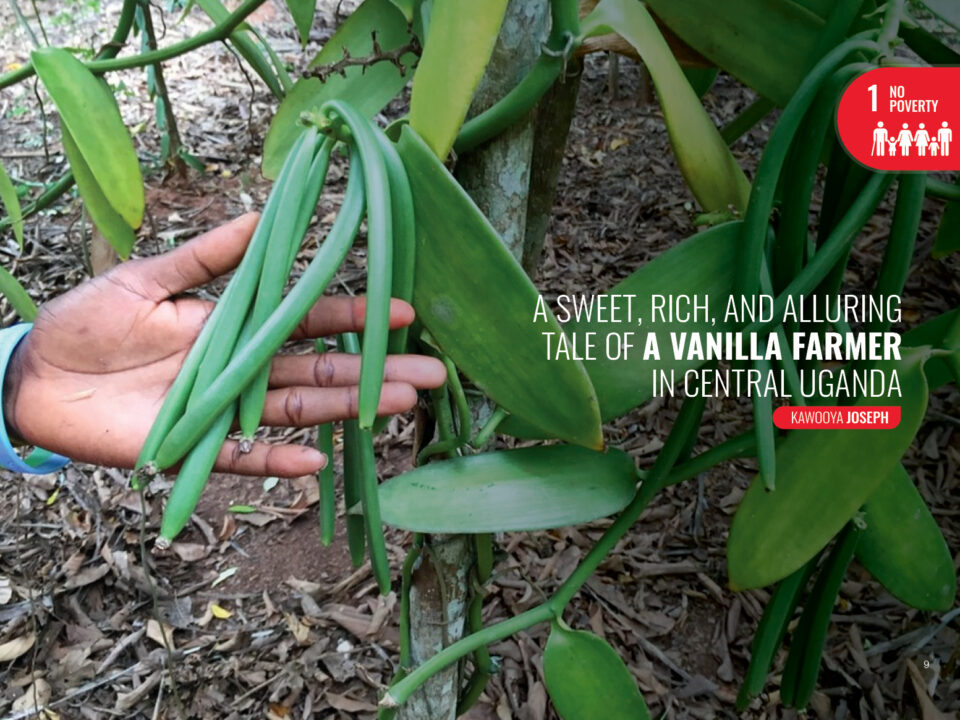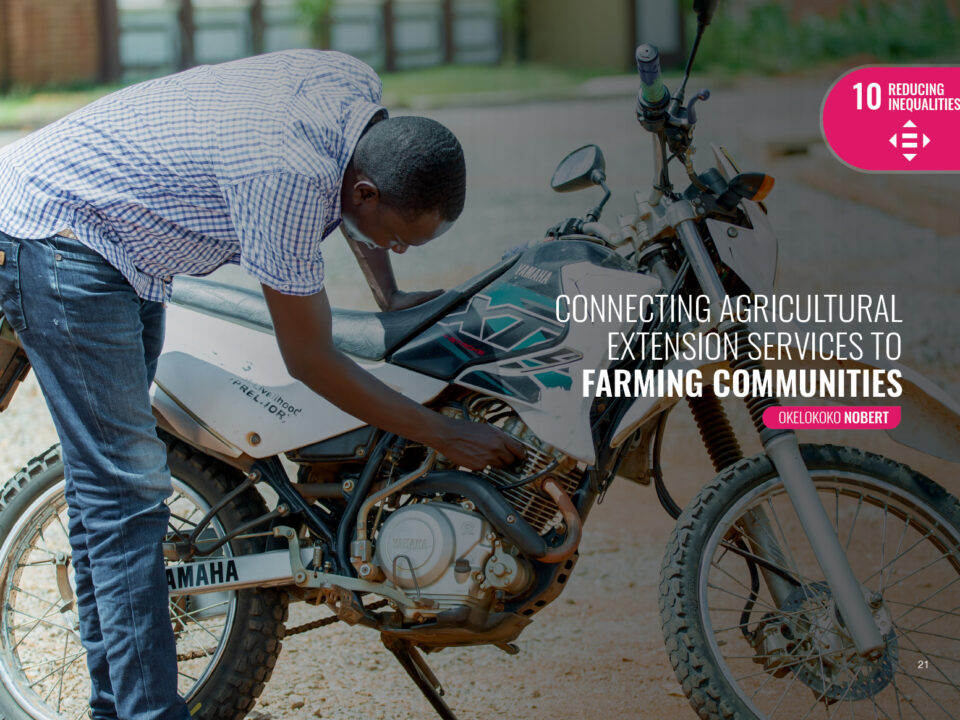Turning Organic Mangoes into Marmalade
Rose Moyoo set out to make mango consumption more nutritious and tastier with her organic Mango Marmalade jam. She started this initiative as part of Gulu University’s student Agribusiness incubation system, which was funded by the TAGDev Program.
“As scholars, they were tasked with developing an idea in the agricultural value chain.” Moyoo thinks back.
She then considered her home district of Moyoo, where each household has two or more mango trees, which means that mangoes go unused during peak seasons because there are so many and market demand is so low. Mangoes are left to rot in markets, along roadsides, and in compounds during peak seasons.
Some people remove the flowers during the flowering season to reduce the number of fruits. Some people go so far as to cut down mango trees, which worries her because indigenous mango breeds are becoming extinct. She then decided to make mango jam to maximize the value of mangoes.
She is currently developing and improving the product through various lab analyses. After completing this process, she hopes to expand, gain more market share, and employ more people because her current production is on a small scale, making it impossible to meet customer demands satisfactorily.
Moyoo claims that her jam is better for bread because it contains more nutrients than eating mangoes. She is seeking anyone interested in eating organic jam without preservatives, as well as anyone concerned about their health.
Even though her initiative is still in its early stages of commercialization, she is proud to say it has had an impact on a couple of people so far. She works with about ten farmers who earn money from the mangoes they sell to her, which allows them to meet their basic needs.
She used to be completely reliant on the orphanage, but now she can fend for herself and even gives back to the orphanage once in a while. Moyoo can afford to pay school fees for about five orphans, making her a source of inspiration for the orphans because she was once like them.
Moyoo says she has now successfully settled in the community to the moment that she has recently purchased land in Paboo on which she hopes to establish a farm for her project. She recently applied for the Generational Foods grant, which has put her in tandem to travel to Belgium as a Ugandan youth ambassador to discuss the practice of sustainable agriculture.
Moyoo also mentions several challenges, such as people’s aversion to changing and trying new products because they are accustomed to existing products such as orange marmalade and margarine. She is also constrained by a lack of capital to assist her in producing on a large scale.
“Despite the challenges, there is always something you can do,” she says, encouraging everyone to stay committed and focused.
Moyoo hopes to pursue a master’s degree in sustainable agriculture in the future so that she can speak more about sustainability. She would also like to expand her business and possibly build a factory on the land she purchased in Paboo. Finally, she hopes to establish a demonstration farm on this property where people can learn about the agroecological aspects of sustainable agriculture.
These Stories are a result of the documentation from the RUFORUM and Mastercard Partnership under the TAGDEV Project, Gulu University: https://ruforum.wordpress.com/category/tagdev-project/




